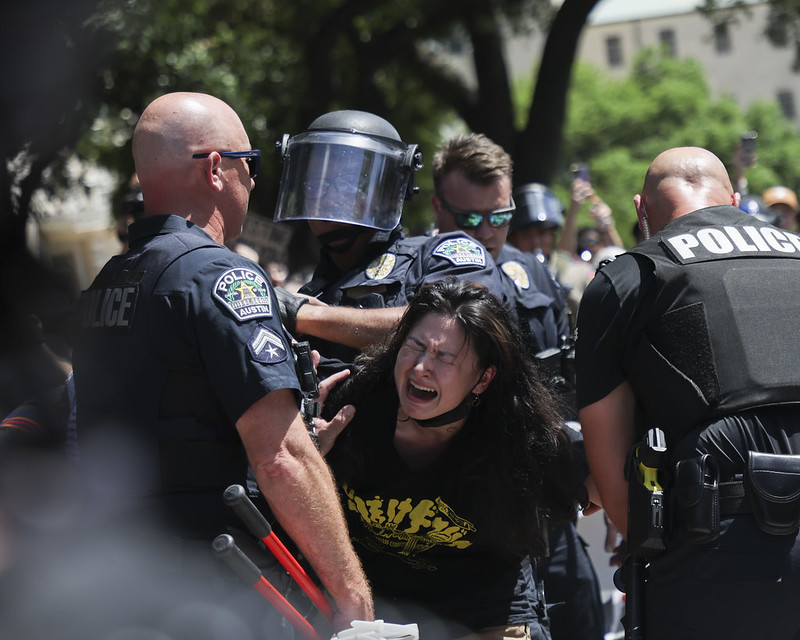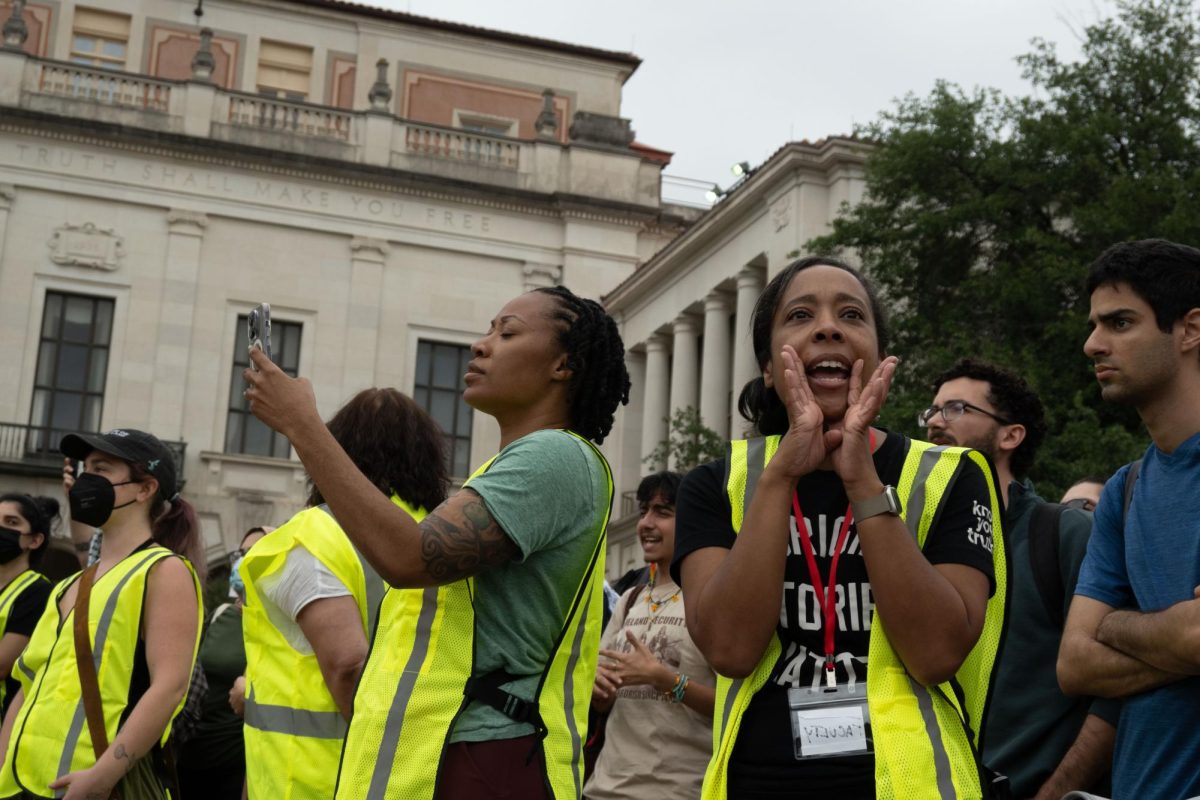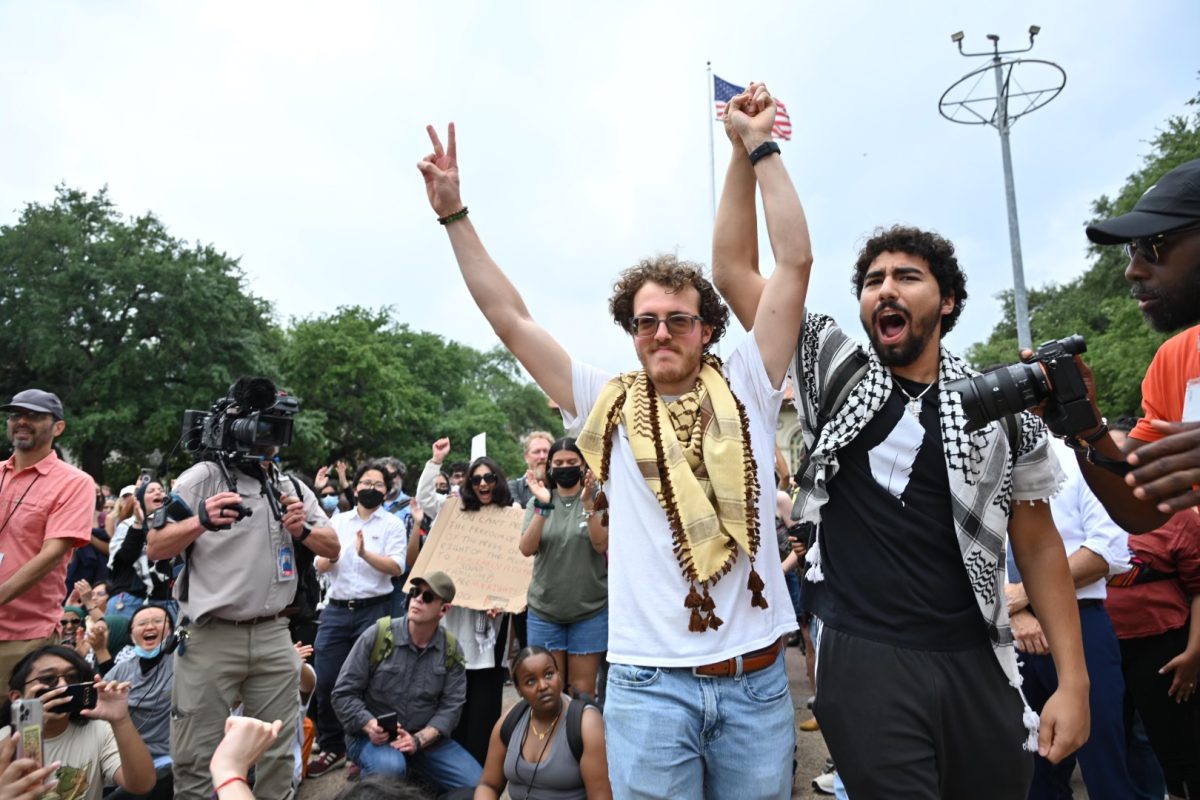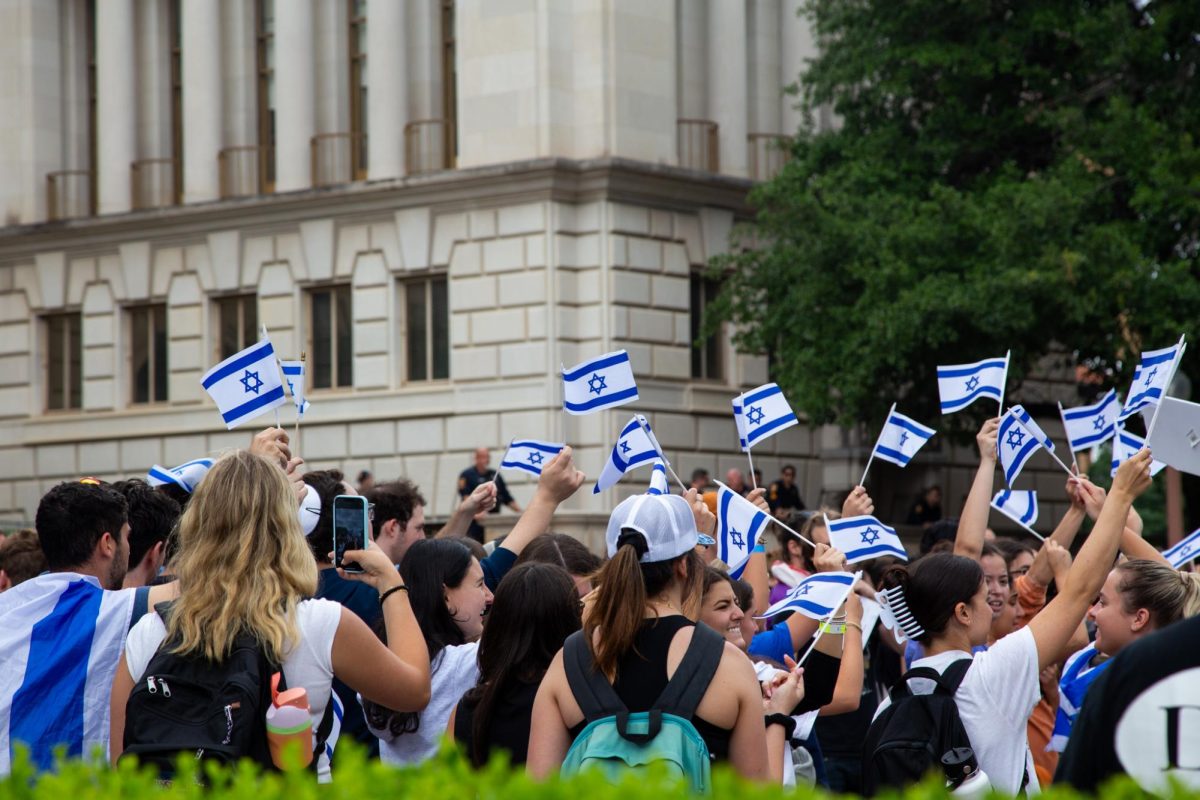Petitioners swarmed the University throughout March and April, gathering signatures to get Robert F. Kennedy Jr. on the Texas presidential ballot.
“They’re everywhere — I was at Zilker Park this weekend, and we were just sitting there and they came up to us,” said Scott Poole, president of non-partisan organization TX Votes. “I wish them luck.”
Kennedy launched his Texas ballot access campaign on March 6 immediately following the state primary elections. Running as an independent, he needs to collect 113,151 signatures in Texas, and over 1 million nationwide, to secure a spot in the 2024 presidential race, according to his website. With a voting rate of 75.8% in 2020, UT is a ripe spot for petitioners in the state capitol.
Nursing sophomore Nicky Alexander said a petitioner approached them near the Dobie Mall asking if they were registered to vote. When Alexander said yes, they said the petitioner began talking about Kennedy and requesting personal information such as their email, home address and full name.
“I remember not really understanding what he was saying,” Alexander said. “I felt bad that I had signed it and frustrated at how vague yet pushy the guy was.”
Kennedy encourages supporters to volunteer as “RFK Heroes” by purchasing petition packets directly from the campaign website for $15. For every petition page they complete, volunteers receive rewards such as limited edition RFK merchandise. The campaign also designates field teams of canvassers that target high-traffic areas, such as the UT campus.
“People who are less firmly connected to the existing party system, (like) younger voters, are much more open to third-party candidates,” said Daron Shaw, a government professor and co-director of the University of Texas/Texas Tribune Poll.
Shaw said gauging support for third-party or independent candidates poses a challenge since they often face co-optation of issues by major parties, vote-splitting and differing state policies regarding third-party ballot access that make their campaigns unreliable. In Texas, independent candidates must wait until the primaries end before collecting signatures, and those signatures must come from people who didn’t vote in the primaries.
“I would vote third party if I truly agreed with their stances and values,” Alexander said. “I know this country is heavily divided when it comes to the main political parties, so I know that for now, it’s a low chance for a win, but I believe that it’s possible in the future.”
Kennedy’s campaign claims to meet signature goals in eight states, but Utah is the only one to confirm that he will be on the ballot. While third-party candidates present an alternative to the repeat lineup of Joe Biden and Donald Trump, Poole said he senses potential apathy across the board.
“President Biden is almost 80, and President Trump is also almost 80 — and then Kennedy is 70,” Poole said. “The biggest impact will be people deciding not to turn out to the polls.”















